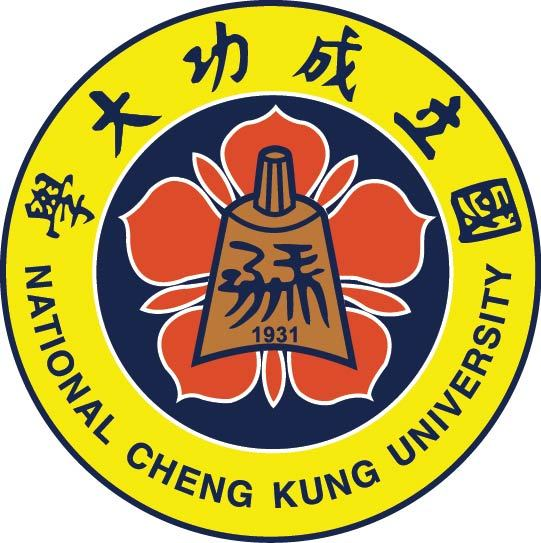Electrical Machine and Drive System Laboratory
Research Field
Min-Fu Hsieh received his B.Eng. degree in mechanical engineering from National Cheng Kung University (NCKU), Tainan, Taiwan, in 1991, and his M.Sc. and Ph.D. degrees in mechanical engineering from the University of Liverpool, Liverpool, U.K., in 1996 and 2000, respectively. From 2000 to 2003, he worked as a researcher at the Electric Motor Technology Research Center, NCKU. In 2003, he joined the Department of Systems and Naval Mechatronic Engineering at NCKU as an Assistant Professor, and in 2012, he was promoted to Full Professor. In 2017, he transitioned to the Department of Electrical Engineering at NCKU, where he has served as a Distinguished Professor since 2022. He is currently serving as an Associate Vice President for Research and Development at NCKU. His research interests include electric machine design, drives and control, power electronics, EV powertrain, mechatronics, and renewable energies.
The Electrical Machine and Drive System Laboratory at National Cheng Kung University (NCKU) is a prominent research facility within the College of Electrical Engineering & Computer Science. Under the leadership of Professor Min-Fu Hsieh, the lab focuses on advanced research in motor design, motor drives/control, wide bandgap power devices and their applications such as electric vehicles or industrial drives. Its main objectives include creating motors optimized for specific applications and developing control strategies that enhance energy efficiency.
The lab is dedicated to bridging the gap between academia and industry by collaborating on cutting-edge projects. These include partnerships with organizations such as the National Space Organization (NSPO), Delta Electronics, and the National Chung-Shan Institute of Science and Technology (NCSIST). The lab also contributes to the fields of electric vehicles and space satellite technologies.
In addition to these industry collaborations, the lab emphasizes training in high-power and high-frequency motor drives, making it a hub for innovation in the electrical machine and drive system domain.
- Electric Motor Drive and Control
- Electric Vehicle (EV) Powertrain
- Wide bandgap power devices (SiC, GaN) applications
- Electric Machine Design and Analysis
- Power Electronics
- Mechatronics
- Renewable Energy System
- Distinguished Lecturer, IEEE Magnetics Society, 2025-2026
- Chair, Local Organizing Committee for 2025 IEEE IAS Annual Meeting (2024/6~)
- Invited Speaker, IEEE INTERMAG 2024
- Listed in World’s Top 2% Scientists for Career and Single Years. 2022, 2023, 2024
- Outstanding Engineering Professor, Chinese Institute of Engineers, 2024
- Delta Electronics Chair Professor, 2019, 2020, 2021, 2022, 2023, 2024
- Excellent Industry Collaboration Award, National Cheng Kung University, 2020, 2021, 2022, 2023, 2024.
- Excellent Project Award, National Defense Advanced Technology Research Program (2023.12)
- Second Prize, 2023 Symposium on High Power Semiconductor Materials (GaN & SiC) and Devices Poster Competition, 2022, 2023.
- K.T. Li Technology and Literature Leadership Award – Gold Award, 2022.
- First Prizes - the “From IP To IPO (FITI)” Program, (200 Million NT Dollars Prize Money), Ministry of Science and Technology, 2020.
- Supervising Professor, First Prize, Taiwan International Science Fair, 2018.
- Supervising Professor, Second Award of Engineering Mechanics, Intel International Science and Engineering Fair, 2018.
- Outstanding Teaching Award, NCKU, 2014.
- Excellent Teaching Award, NCKU, 2007.
1996-2000 PhD Department of Engineering, University of Liverpool, UK
1995-1996 MSc Advanced Manufacturing Systems and Technology, University of Liverpool, UK
1987-1991 BSc Dept. of Mechanical Engineering, National Cheng Kung University, Taiwan
2 Vacancies
Job Description
Design of Electric Machines.
Designing traction motors for electric vehicles (EVs) involves several critical aspects to ensure high performance, efficiency, and reliability. The task encompasses the following key areas:
1. Motor Topology Selection, such as Permanent Magnet Synchronous Motors (PMSM). They are Widely used in EVs due to their high efficiency and power density. They use permanent magnets on the rotor, reducing losses and improving performance, especially at high speeds.
2. Efficiency Optimization:
Maximizing the efficiency map of the traction motor is vital. This involves optimizing the motor constants and considering various operating points to ensure high efficiency across a wide range of speeds and loads.
3. Testing and Validation:
Prototyping and rigorous testing are essential to validate the motor’s performance under real-world conditions. This includes evaluating efficiency, torque production, thermal behavior, and durability.
The goal is to design a traction motor that meets the specific requirements of EVs, including high efficiency, high torque density, low weight, and robustness, while also ensuring compatibility with the vehicle’s power electronics and control systems.
Preferred Intern Education Level
PhD or Master students are preferred. Undergraduate students are also welcome.
Skill sets or Qualities
- Circuit Design and Analysis
- PCB Layouts
- Foundations of Power Electronics
- Foundations of Electrical Machinery
